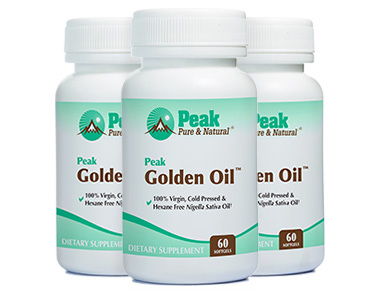Get Easy Health Digest™ in your inbox and don’t miss a thing when you subscribe today. Plus, get the free bonus report, Mother Nature’s Tips, Tricks and Remedies for Cholesterol, Blood Pressure & Blood Sugar as my way of saying welcome to the community!
What your risk of getting seriously sick with coronavirus actually looks like

I have bad news…
Despite the quarantines, the docked cruise ships, the canceled international flights and all the other precautions people are taking, the coronavirus (COVID-19) keeps spreading.
Even worse, experts say that when this particular coronavirus quiets down, we’ll still need to remain “vigilant” because coronaviruses, in general, are becoming more contagious and potentially more dangerous.
In light of this, it’s easy to let yourself worry. I mean, when you’re reading that a virus that starts out like the common cold is killing people, how could you not worry?
But before you worry too much, I want to tell you a few things about your coronavirus risk you may not realize…
Risk of serious coronavirus infection depends on age and health
Here’s the good news… the vast majority of coronavirus infections are mild — 80.9 percent of infections to be precise. In fact, a lot of people carry the virus without developing any symptoms.
The not-so-great news for people in the U.S. is this: our risk of contracting the virus stateside has changed in the last few days…
Previously, experts warned our risk of exposure was practically non-existent unless we came into contact with someone who traveled to China. About 86 percent of people who’d developed the virus had lived in or traveled to Wuhan, China, where the epidemic started.
But that’s changed. Two people in the states have died after contracting coronavirus… a woman in California and a man in Washington State. Neither had recently traveled out of the country nor were in contact with someone who did. Also in Washington state, at least two other individuals have tested positive. These are the first instances of the spread of coronavirus within the U.S.
That means there are no guarantees coronavirus won’t become a bigger problem in the U.S. at some point. But how concerned should you be? Let’s break that down…
Just like the flu, people who are older or who have other health conditions have a higher risk of developing a serious coronavirus infection.
People who are 80 years or older have the highest fatality rate — 14.8 percent. And heart disease is the health condition that puts you most at risk for dying from coronavirus complications. People with diabetes, chronic respiratory disease and hypertension also have a higher risk of dying from coronavirus complications.
Related: Survived the flu? Don’t let a heart attack follow
Luckily, there have been no deaths in children so far. And the overall death rate is low — 2.3 percent. But men have a slightly higher risk of dying — 2.8 percent. The risk among women is only 1.7 percent.
Now, as I said before, older adults have the highest risk of developing a critical coronavirus. That means your risk goes up slightly the older you are. Here’s how the risk of death breaks down by age:
- 39 and under- 0.2 percent
- 40s- 0.4 percent
- 50s- 1.3 percent
- 60s- 3.6 percent
- 70s- 8.0 percent
All in all, the coronavirus epidemic is a great reminder to take better care of your overall health and specifically your immune system, so the viruses you come into contact with are less likely to take a turn for the worst. Here’s how you can do that…
3 ways to support your immune system
Supporting your immune system is critical to keeping yourself safe from coronavirus… and every other virus. Here are a few surefire ways to make sure your immune system is strong:
- Research shows that walking briskly for 30 minutes increases the number of natural killer cells, white blood cells and other important immune cells circulating in the body.
- Eat healthy. How you eat makes a big difference in your immune system. Certain foods are known immune boosters. And eating healthy may even help you fend off viruses.
- Take immune supplements. Supplements can be a great way to support your immune system. Probiotics are one of my favorites. Studies show they can prevent infection. Medicinal mushroom supplements are also powerful immune supporters. And so is black seed oil, which is made from the oil of black Nigella Sativa seeds.
Peak Golden Oil™
100% organic, hexane-free Black Seed Oil. Its protective immuno-modulating properties support a healthy immune system and a strong immune response as well as calms over-active inflammation.
If despite your best efforts, you do get coronavirus at some point in the future, I have advice for you… don’t take steroids. Doctors sometimes prescribe them to reduce lung inflammation in people with respiratory infections. But research shows they only make matters worse.
Sources:
- Most coronavirus infections are mild, says Chinese study — MedicalXpress
- Coronavirus Disease 2019 (COVID-19) Situation Summary — Centers for Disease Control and Prevention













